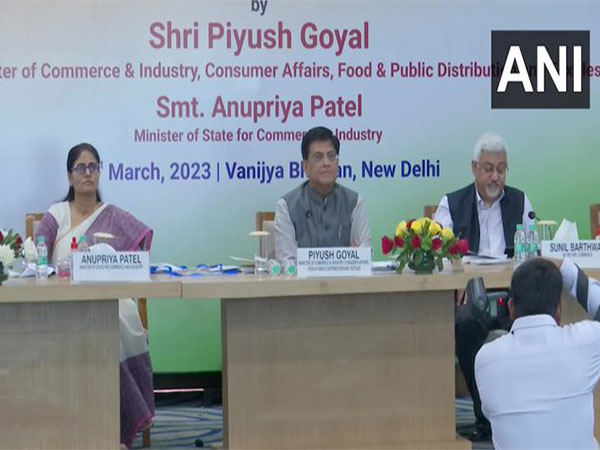
New Delhi: The Central government on Friday unveiled India's new Foreign Trade Policy (FTP) 2023, which seeks to boost the country's exports to $2 trillion by the year 2030 and focuses on international trade settlement in rupees.
Commerce and Industry Minister Piyush Goyal unveiled FTP 2023 which will come into effect from April 1. The Foreign Trade Policy 2015-20, which was to end in March 2020 was extended due to the COVID-19 pandemic and volatile geo-political scenario and was set to end on Friday.
International trade settlement in rupee is allowed under the new policy and changes introduced for the grant of export benefits and fulfilment of export obligation for export realisations in Indian currency as per RBI norms.
The government has been working towards making the Indian rupee a global currency and allowing international trade settlement.
The RBI had last year put in place an additional arrangement for invoicing, payment, and settlement of exports/imports in Indian currency. This mechanism will help in internationalizing the Indian currency in the long run. A currency can be termed "international" if it is widely accepted worldwide as a medium of exchange.
The Foreign Trade Policy 2023 being is aimed to provide policy continuity and a responsive framework.
Under the new policy, provisions for merchanting trade are also proposed. A merchanting transaction is one which involves the shipment of goods from one foreign country to another foreign country involving an Indian Intermediary.
The government believes merchanting trade is expected to facilitate trade, making India a trade hub.
Also, four new towns of export excellence (TEE) are being declared in addition to the already existing 39 towns of export excellence. They are Faridabad for apparel, Moradabad for handicrafts, Mirzapur for handmade carpet and dari, and Varanasi for handloom and handicraft.
The benefits of such export excellence are recognition, market access initiative scheme, and common service provider facility.
India's total exports already crossed $750 billion and is projected to touch USD 760 billion by today, and will be the highest by the country ever. This will be an increase of over 13 per cent on a yearly basis.
"India's projected growth (in 2023) is more than double the projected growth for the world. The WTO's global trade forecast predicts growth in world trade to slow down to 1 percent in 2023, due to global uncertainties. Export scenario will remain challenging," the government said in its presentation.
In the past six-to-seven years, India's exports have risen by about 75 per cent, as compared to 28 per cent at the global level, data showed.
During the period, engineering and agricultural exports rose 81 per cent and 61 per cent, respectively. Pharma and electronics goods rose 45 per cent and 163 per cent, respectively.
Coming to marine products and toy, they rose 63 per cent and 89 per cent, respectively, data showed.
Further, dairy sector to be exempted from maintaining Average Export Obligation. It aims to support the dairy sector to upgrade technology.
Battery electric vehicles (BEV) of all types, vertical farming equipment, wastewater treatment and recycling, rainwater harvesting system and rainwater filters, and green hydrogen are added to green technology products will now be eligible for reduced Export Obligation requirement under Export Promotion Capital Goods Scheme.
For ramping up e-commerce exports, all benefits under the trade policy will be extended to the exporters. Special outreach and training activities for small e-commerce exporters will be ensured.
The government estimates suggest that e-commerce exports are expected to grow to USD 200-300 billion by 2030.
The government will set sector-specific targets to achieve the goal of trillion dollar merchandise exports by 2030. The government will also restructure the Department of Commerce to make it future-ready.